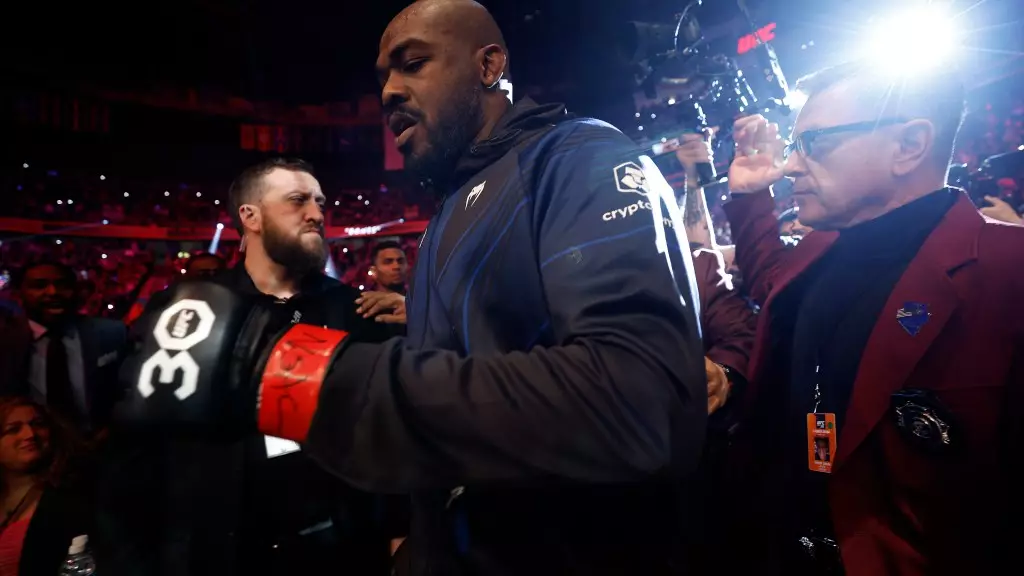In the world of mixed martial arts (MMA), fighters often use their platform to generate buzz and intrigue surrounding their careers, especially during pivotal moments. Recently, Jon Jones, one of the sport’s most dominant figures with a record of 27 wins and one loss, hinted that his upcoming bout against Stipe Miocic at UFC 309 may be his last. Such proclamations typically stir up conversations regarding a fighter’s legacy and potential retirement, but as Chael Sonnen suggests, the sentiment might be more of a marketing strategy than a genuine farewell.
Chael Sonnen, a former competitor and now a commentator, expressed skepticism about Jones’s retirement remarks during a recent YouTube discussion. Notably, he highlights that Jones used the phrase “more than likely” when speaking about his future, suggesting a lack of conviction in his assertions. For Sonnen, this particular phrase raises red flags and indicates a calculative approach rather than an emotional decision. By adopting such a tactic, Jones could be working to amplify the stakes of the fight and keep fans on edge, perpetuating interest in his career trajectory even as it ostensibly nears its conclusion.
Sonnen points out that utilizing the retirement narrative aligns with common strategies employed by fighters to heighten their marketability—this is a common practice, especially in high-stakes matchups. The illusion of retirement may serve a dual purpose: it can evoke sympathy and support from fans while simultaneously creating a stronger sense of urgency surrounding the event. Jones’s calculated deployment of retirement rhetoric could, therefore, be viewed as a savvy marketing maneuver rather than a sign that he genuinely intends to hang up his gloves.
The upcoming clash between Jones and Miocic on November 16 not only serves as a title defense but also bears the weight of legacy for both fighters. For fans, the narrative of a retirement fight adds an intense emotional layer, especially for a champion of Jones’s caliber. However, if his comments about retirement are indeed mere marketing fluff, it raises questions about authenticity in sports promotion. The allure of a farewell bout—one final chance to witness a legend in action—could be diminished if it’s merely a ruse to create buzz.
Moreover, with Dana White confirming that Tom Aspinall will serve as a backup for the fight, expectations are heightening. True to Sonnen’s argument, the underlying sentiments of “what if” scenarios can contribute to ticket sales and pay-per-view buys. The market thrives on uncertainty, and retirement speculation feeds into that uncertainty, creating a fertile environment for financial gain.
Ultimately, while the idea of Jon Jones retiring after his match with Stipe Miocic is tantalizing and plays well into the emotional narratives that surround combat sports, it is essential to scrutinize the motivations behind such declarations. Sonnen’s perspective serves as a reminder that, in the world of professional fighting, what is spoken may not always align with reality. Instead, it often reflects a strategic interplay of promoting excitement and engagement within a fiercely competitive market. As fans eagerly await November 16, the anticipation surrounding the fight is as much about what might happen next for Jones as it is about the outcome within the Octagon.

